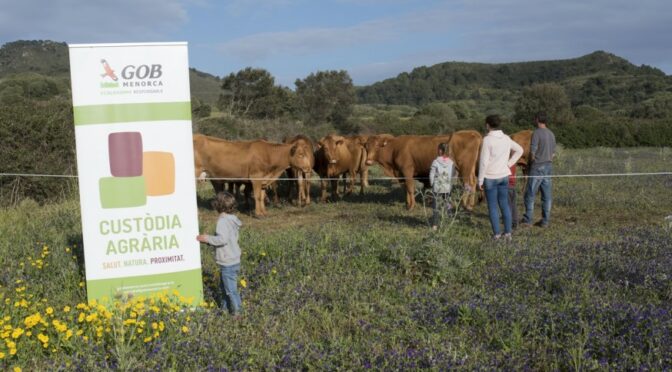Views: 574
The Earth Overshoot Day marks the day in the year when the natural resources demanded by humanity is greater than the earth is able to regenerate completely for the year. That day was 29 July 2021, when we humans had consumed the produce and emitted as much pollution as the earth is capable of generating and regenerating during this year.
All that we eat from today until the end of the year will be taking from the natural reserves accumulated over thousands of years and the resources “destined” for future generations from whom we are robbing future opportunities.
This date, calculated by the organization Global Footprint Network began working in the 1970s. In those years, the Earth Overshoot Day was calculated for the end of December, when there was an ecological balance between the human footprint and the Earth’s capacity to replenish.
Since then the date has come forward by approximately one month each decade. This tendency is indicative of the growing human demand on resources. It slowed down only in 2020 because of the nearly world wide confinement due to coronavirus. Now, in 2021 we have returned to dates like 2019.
Despite activity not having resumed completely, we have increased the human carbon footprint by 6.6% compared with last year. Meanwhile, the Earth’s forest bio capacity has reduced by 0.5%, mainly due to the huge deforestation that continues to take place in the Brazilian Amazon.
Studies indicate that around 50% of consumed resources are related to the web of food systems. That is, food production, its transport and distribution, its consumption and eventually in food waste.
This is where initiatives like the Land Stewardship Scheme come into play. The features of this Scheme are more sustainable food production, with greater local distribution and consumption, as well as the reduction of waste that are key parts in the regulation of our ecological footprint.
With the Land Stewardship Scheme we try to influence both ends of the chain. At one end, we encourage agricultural production that most respects nature. At the other end, we raise awareness amongst consumers so that they demand products with the lowest ecological footprint (which implies different aspects: production that most respects nature, local suppliers, short distribution, minimal packaging…) in fact those that are the most healthy as much for us as for the environment.
If the two ends, from the producers to the consumers, clearly position themselves for sustainability, the rest of the chain will adapt and the entire food system will reduce its ecological footprint.
To increase its impact, the Land Stewardship Scheme participates in the “Foodnected” (food and connected) initiative with a Mediterranean scope in which Slowfood, Global Footprint Network and LIFE are participants.
In what is left of the year since 29 July, when you go shopping, think of the impact on the environment made by the foods that you buy. Demand organic foods, make a commitment for sustainable products such as those from the Land Stewardship Scheme, and look for local produce with minimal packaging. The Earth and future generations will be grateful to you.

